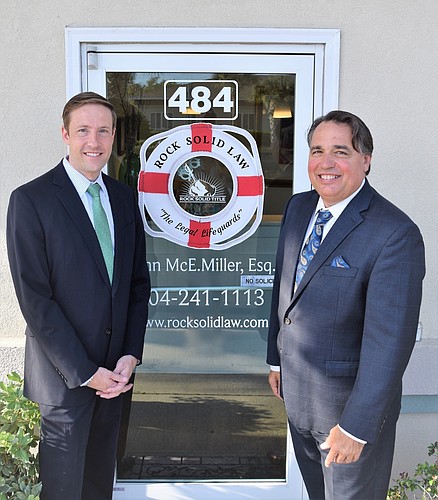
By John McE. Miller & Andrew Woods • JBA Environmental & Real Property Committee
“Homestead” under Florida law has at least three definitions, often leading to confusion among practitioners and lay people alike.
Historically, homestead in Florida was granted to provide two important protections to settlers in the Civil War era and afterward: First, to prevent forced sale by creditors, and second, to provide a surviving spouse (usually wife) and family with shelter, a place to live.
It also was intended to encourage pioneers to stake their claims in Florida, which became a state in 1845, before electricity and air conditioning.
If the head of household failed, at least the family would have a home. This was codified by the U.S. Congress in the Florida Homestead Act of 1862.
Florida’s love affair with homestead was further codified Nov. 6, 1934, when Section 7 was added to Article X of the Florida Constitution.
In Florida, “homestead” has several meanings: Exemption from forced sale, restriction on transfer and devise, and property tax exemption.
Exemption from forced sale
The exemption from forced sale protects a homeowner’s primary residence from forced sale by a creditor.
For example, if a court enters a money judgment against a homeowner, the judgment creditor will not be able to satisfy its judgment with the person’s homestead.
This protection is extremely strong and has worked under dubious circumstances such as O.J. Simpson shielding funds from the Goldman and Brown families by moving to Florida and investing in a Miami-area home.
Rare exceptions include recovery against the homestead for unpaid property taxes, defaulted mortgage debt and unpaid obligations contracted for labor performed on the property.
The exemption from forced sale not only protects the homeowner, but also allows his or her heirs to inherit the property free of the homeowner’s creditors.
Restriction on transfer
Perhaps the least known of the three homestead laws is the restriction on transfer and devise.
The restriction prevents a homeowner in Florida from transferring his or her homestead property without joinder or waiver of a spouse. In addition, absent a waiver, the property must pass to the homeowner’s surviving spouse following death.
There also is a restriction on devise for a homeowner who dies survived by one or more minor children.
This restriction is absolute, and the homestead passes to the decedent’s minor children by operation of law.
These restrictions are designed to protect widows and orphans but often are a trap for the unwary when it comes to estate planning and pose difficulties when dealing with homestead property during the administration of a decedent’s estate.
Property tax exemption
Perhaps most important to Florida homeowners is the property tax exemption and related Save Our Homes law.
The constitutional property tax exemption provides that the first $25,000 assessed value of a Florida homestead is exempt from all property taxes. An additional reduction of up to $25,000 in assessment applies if the home is worth at least $50,000; however, the second exemption only applies to non-school taxes.
The SOH law cap begins when the county grants the initial exemptions and caps the increase in the assessed value of homestead property to the lesser of the rate of inflation or 3% per year.
Historically, the appreciation of property in Florida has outpaced the SOH cap and has created significant property tax savings for longtime homeowners.
In addition, if a homeowner moves residences but stays in Florida, up to $500,000 of SOH cap may be ported to the new property.
Homestead issues can be difficult to navigate. Those with questions should contact a law firm with attorneys who specialize in both real property and estate planning.
John McE. Miller is senior attorney/owner and Andrew Woods is an associate attorney with Rock Solid Law, focusing on real estate closings, estate planning and small business representation.